Speaker Bios
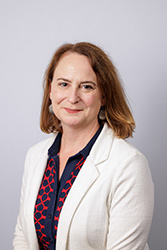
University of Illinois Chicago
Professor
Dr. Joanna E. Burdette earned her B.S. from Emory University in Biology and her Ph.D. at the University of Illinois at Chicago. She was a postdoctoral fellow at Northwestern under the direction of Dr. Teresa K. Woodruff. She is currently the Edward and Josephine Mika Professor in the Department of Pharmaceutical Sciences. In 2014, she was promoted to Associate Dean for Research. Her research has helped to develop three-dimensional models of the fallopian tube to define early events responsible for ovarian cancer formation. She has leveraged organ-on-chip technology and imaging mass spectrometry to investigate the origin of ovarian cancer and the role of ovulation in oncogenesis. She is also actively screening natural products for anti-cancer activity with a focus on ovarian cancer. She is currently the co-leader of the Cancer Biology Program of the UIC Cancer Center and co-director of the NIH K12 IRACDA Postdoctoral training grant.
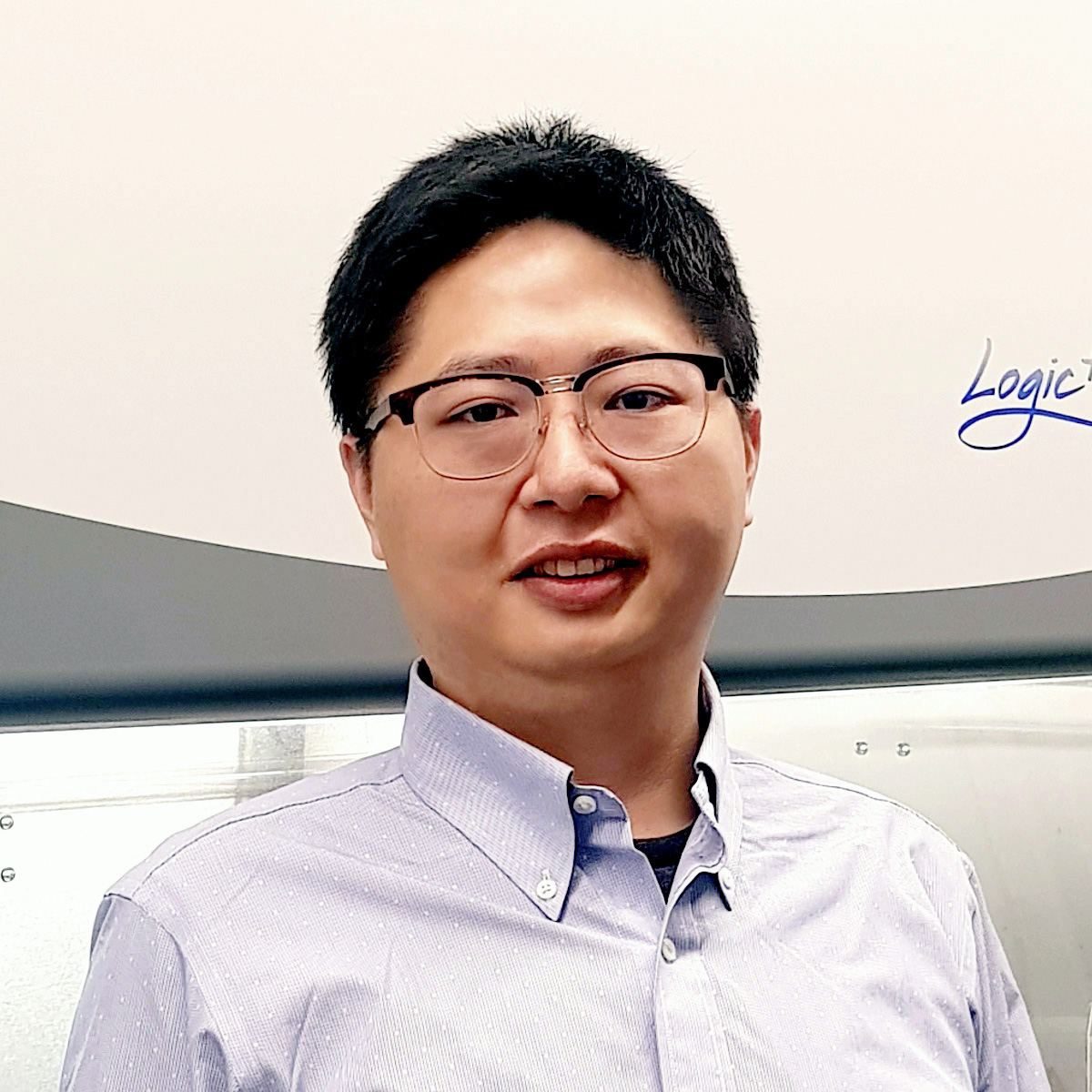
New York University
Professor
Dr. Weiqiang Chen is a Professor in the Tandon School of Engineering at New York University (NYU) and a faculty member at the NYU Langone Health Perlmutter Cancer Center. He earned his Ph.D. degree in Mechanical Engineering from the University of Michigan in 2014. Dr. Chen is a Fellow of American Heart Association, and he is the recipient of numerous prizes and honors, including the NIH Complement-Animal Research in Experimentation Challenge Prize (2024), the Biomedical Engineering Society Cellular and Molecular Bioengineering Rising Star Award (2021) and Young Innovator Award (2019), the New York Academy of Sciences Interstellar Initiative Early Career Investigator Award (2020), and the Chroma Biomedical Engineering Young Investigator Award (2019). Dr. Chen’s research interests center on developing innovative Cancer-on-a-Chip microphysiological systems for tumor microenvironment modeling and immunotherapy screening, microfluidic biosensors for single-cell sensing and immunomonitoring.
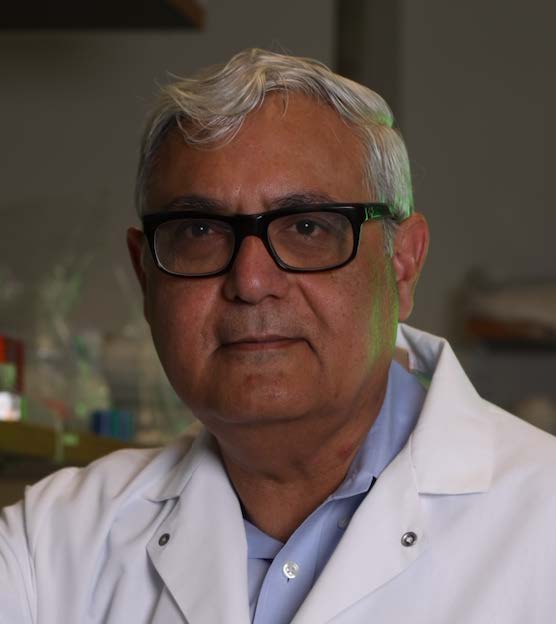
Department of Biomedical Engineering, Duke University
Alan L. Kaganov Professor
Ashutosh Chilkoti is the Alan L. Kaganov Professor of Biomedical Engineering at Duke University. His areas of research include genetically encoded biomaterials, the development of synthetic biomolecular condensates for synthetic biology, and point-of-care clinical diagnostics. He has published ~350 papers, has been cited 50,000 times, has a Google Scholar H-index of 118, and has 171 patents and patent applications. Prof. Chilkoti was awarded the Clemson Award for Contributions to the Literature by the Society for Biomaterials in 2011, the Robert A. Pritzker Distinguished Lecture award by the Biomedical Engineering Society in 2013, was elected to the National Academy of Inventors in 2014, received the Distinguished Alumni award from the Indian Institute of Technology, Delhi in 2015, and the Diamond award from the College of Engineering at the University of Washington in 2017, and the Technology Innovation and Development Award from the Society for Biomaterials in 2025. He is a fellow of the American Association for the Advancement of Science. He is the founder of six start-up companies, one of of which went public, and two were acquired.
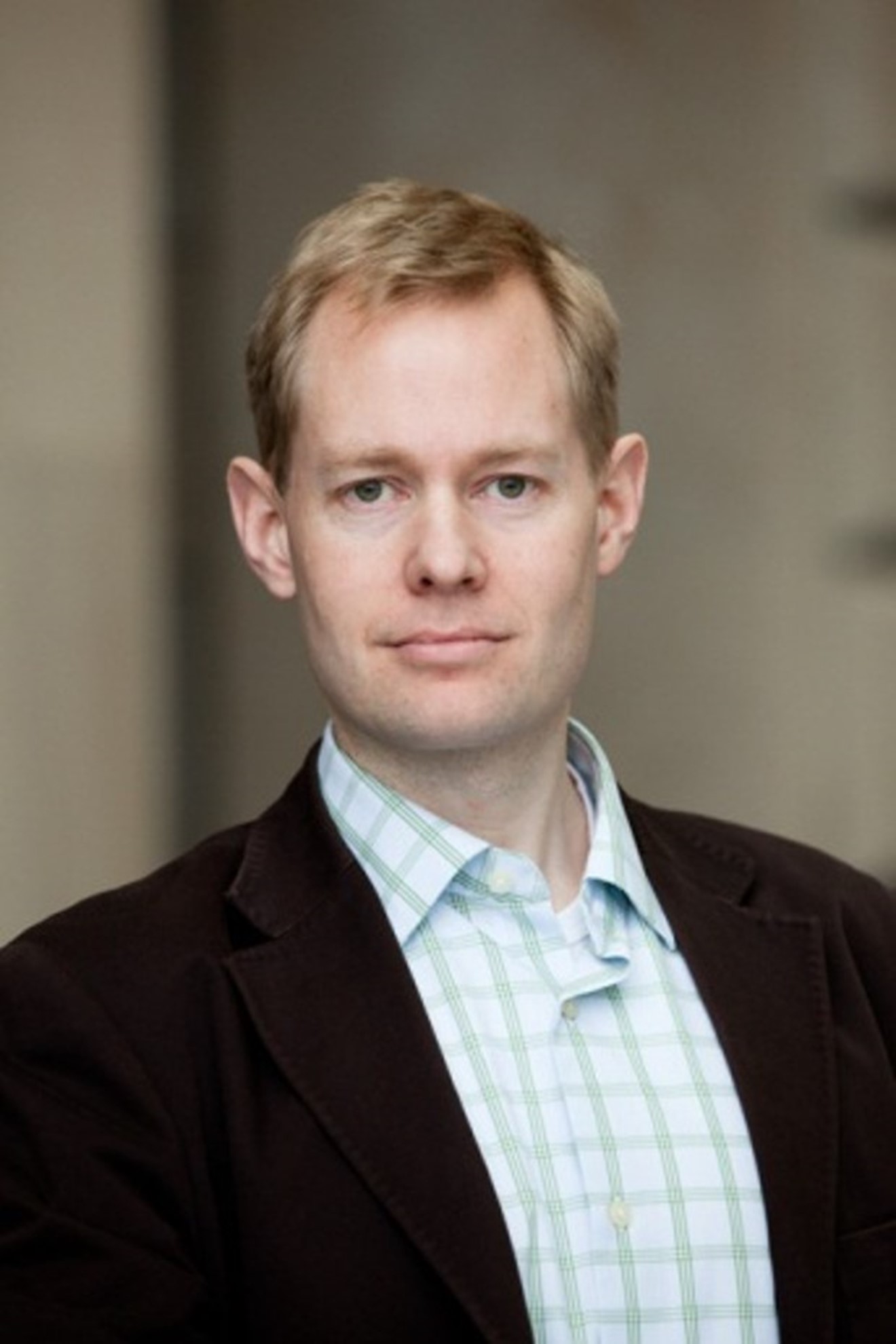
Sibley School of Mechanical and Aerospace Engineering, Cornell University
Sibley College Professor and Director
David Erickson is the SC Thomas Sze Director and Sibley College Professor in the Sibley School of Mechanical and Aerospace Engineering at Cornell University. He is also a joint Professor within the Division of Nutritional Sciences and was previously the Associate Dean of Engineering for Research and Graduate Programs. Prof. Erickson is the director of the NIH POCTRN Center “PORTENT – Center for Point of Care Technologies for Nutrition, Infection, and Cancer in Global Health” (https://pocglobalhealth.cornell.edu/). His research focuses on: global health technology, medical diagnostics, microfluidics, photonics, and nanotechnology. Prior to joining the faculty, he was a postdoctoral scholar at the California Institute of Technology and he received his Ph.D. degree from the University of Toronto. Research in the Erickson lab is or has been primarily funded through grants from the NIH, NSF, ARPA-E, ONR, DoD, DOE, DARPA, USAID, USDA, Nutrition International, Global Alliance for Improved Nutrition, and other foundations. Prof. Erickson has helped to found numerous start-up companies commercializing: high-throughput pharmaceutical instrumentation, biomedical diagnostics, and energy technologies including Halo Labs (http://halolabs.com), VitaScan (http://vitascan.me) and Dimensional Energy (https://www.dimensionalenergy.net/). Prof. Erickson has received the DARPA-MTO Young Faculty Award, the NSF CAREER Award, the Department of Energy Early Career Award, among others. In 2011 he was awarded the Presidential Early Career Award for Scientist and Engineers (PECASE) by President Obama. Erickson has been named a fellow of the Optical Society of America, the American Society of Mechanical Engineers, the American Institute of Medical and Biological Engineering, and the Canadian Academy of Engineering.
ABiG Health LLC
Senior Partner and Co-Owner
Dr. Steven Farmer is a board-certified cardiologist and is co-owner and Senior Partner of ABiG Health. He previously served as Chief Strategy Officer for Coverage at the Centers for Medicare & Medicaid Services (CMS). In that role, he led an effort to streamline and accelerate the development of evidence-based coverage policies. He was the principal architect of the Transitional Coverage for Emerging Technologies (TCET) pathway and led the initiative to incorporate real-world evidence into coverage decision-making. Before his role as CSO, he served as a Senior Advisor in the Center for Medicare and Medicaid Innovation, where he assisted in developing and refining value-based payment programs, with a particular emphasis on the Bundled Payments for Care Improvement Advanced model.
As a British Marshall Scholar, Dr. Farmer completed his PhD in Health Policy at the London School of Hygiene and Tropical Medicine. He completed his medical degree at Yale University School of Medicine and his residency and fellowship training at the University of Pennsylvania. Additionally, he brings experience in strategy consulting, venture capital, and new venture management. He previously served as a faculty member in medicine and business at Northwestern University. He remains a Clinical Associate Professor of Medicine and Health Policy at the George Washington University, where he continues to practice general cardiology and cardiovascular imaging. He is a visiting Professor at a leading business school in Europe (ESCP). His academic work assesses the impact of regulatory and financial changes on medical practice and is published in medical, economics, law, and health policy journals.
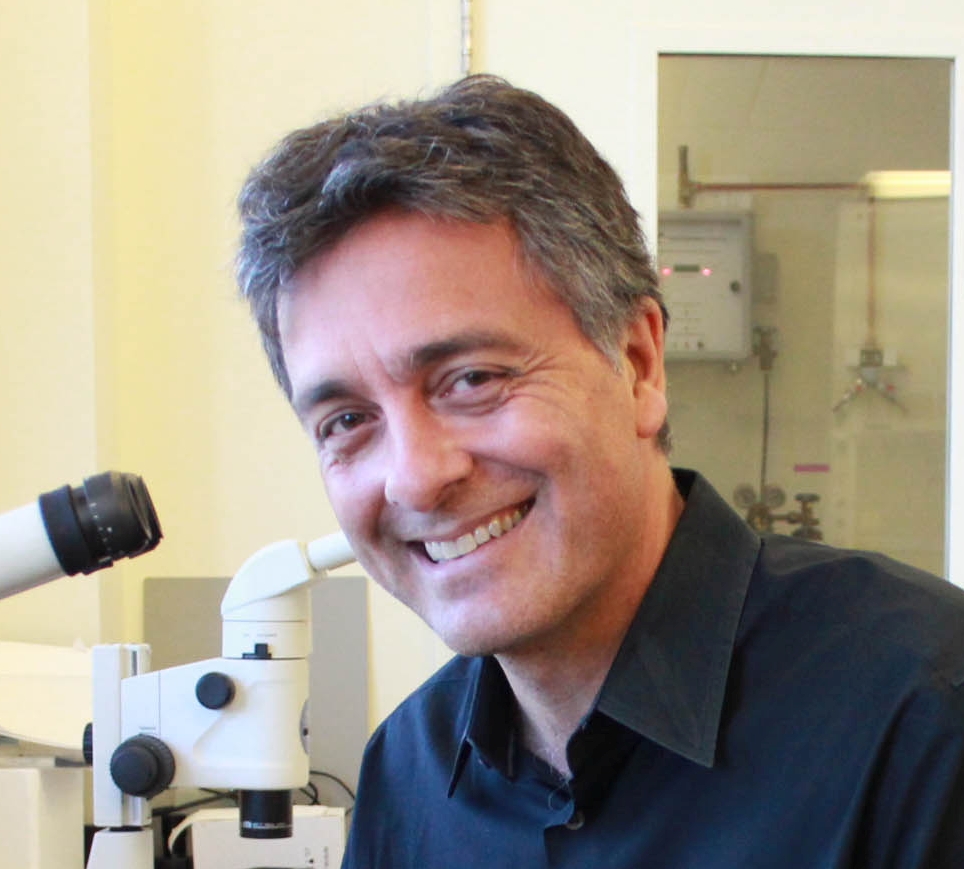
Folch, Albert
Professor of Bioengineering
Albert Folch’s lab works at the interface between microfluidics and cancer. He received both his BSc (1989) and PhD (1994) in Physics from the University of Barcelona (UB), Spain, in 1989. During his Ph.D. he was a visiting scientist from 1990–91 at the Lawrence Berkeley Lab working on AFM/STM under Dr. Miquel Salmeron. From 1994–1996, he was a postdoc at MIT developing MEMS under Martin Schmidt (EECS) and Mark Wrighton (Chemistry). In 1997, he joined Mehmet Toner’s lab as a postdoc at Harvard-MGH to apply soft lithography to tissue engineering. He has been at Seattle’s UW BioE since June 2000, where he is now a full Professor, accumulating over 14,300 citations. In 25 years, he has supervised 19 postdocs (21% of whom have reached faculty rank), 37 graduate students (13 Ph.D. students, 23% of whom reached faculty rank, and 24 M.S. students), and ~44 undergraduates.
In 2001 he received an NSF Career Award, and in 2014 he was elected to the AIMBE College of Fellows (Class of 2015). He serves on the Advisory Board of Lab on a Chip since 2010 and serves on the Editorial Board of Micromachines since 2019. In 2022 he was elected a member of the Institute for Catalan Studies, one of the highest honors bestowed on Catalan scientists.
He is the author of 5 books (sole author), including Introduction to BioMEMS (2012, Taylor&Francis), a textbook adopted by >103 departments in 18 countries, Hidden in Plain Sight (MITPress, 2022), and How the World Flows (OxfordUniversityPress, 2025),. Since 2007, the lab runs a celebrated outreach art program called BAIT (Bringing Art Into Technology), which has produced seven exhibits, a popular resource gallery of >2,000 free images related to microfluidics and microfabrication, and a YouTube channel that plays microfluidic videos with music which accumulate ~175,000 visits since 2009.
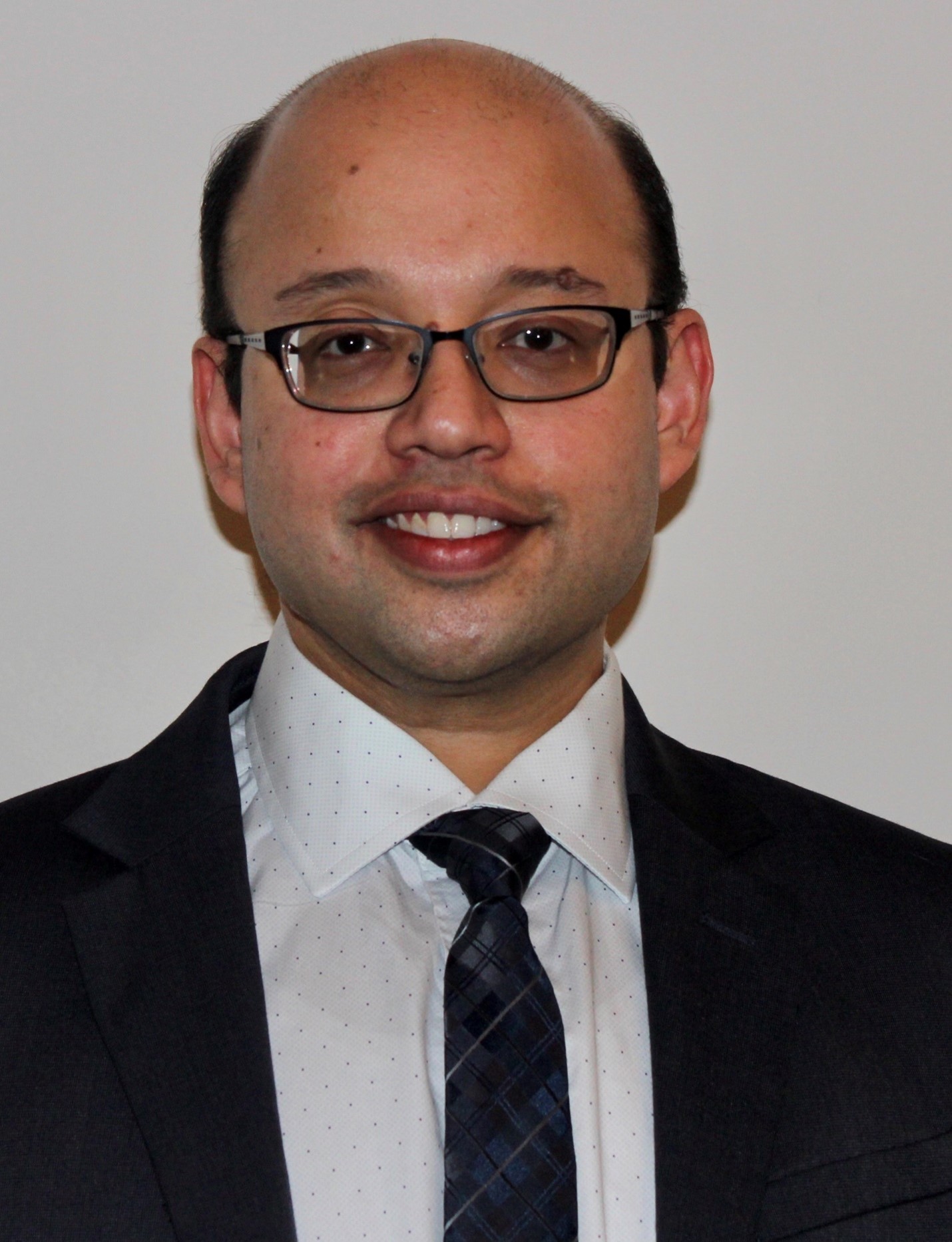
Center for Devices and Radiological Health, U.S. Food and Drug Administration
Mechanical Engineer
Suvajyoti Guha has worked at the US Food and Drug Administration’s Center for Devices and Radiological Health (CDRH) since 2012. He has a PhD in Mechanical Engineering from University of Maryland, College Park. Dr. Guha’s current interests include microfluidics, airborne pandemics, and pediatrics. He has published approximately fifty peer-reviewed articles in these areas. He is currently the program coordinator of the Office of Science and Engineering Laboratories’ Microfluidic Devices Program and in this role leads a diverse number of regulatory science projects for evaluating medical devices that use microfluidics. He routinely advises CDRH’s review and policy teams in multiple product specific areas including respiratory, enteral, cardio-pulmonary devices and insulin pumps.
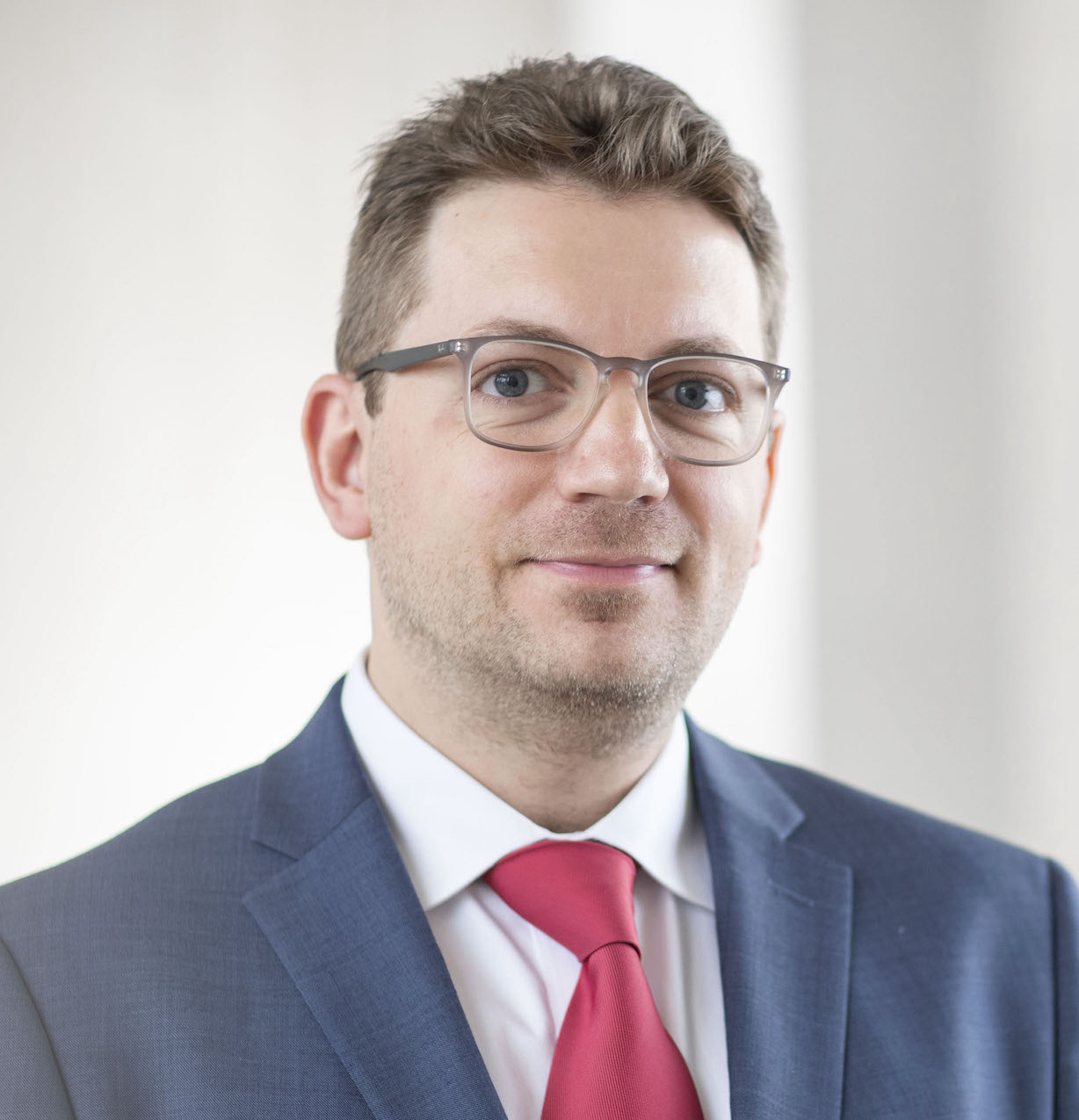
Case Western Reserve University
Wilbert J. Austin Professor of Engineering
Umut Gurkan, Wilbert J. Austin Professor of Engineering, leads the Case Biomanufacturing and Microfabrication Laboratory at Case Western Reserve University, holding roles across multiple departments including Mechanical and Aerospace Engineering, Biomedical Engineering, Orthopedics, the Case Comprehensive Cancer Center, and the Clinical and Translational Science Collaborative of Northern Ohio. His groundbreaking work centers on microcirculation, vascular biology, and red blood cell research, driving the development of innovative microfluidic systems and point-of-care diagnostics for blood disorders, infectious diseases, and cancer, aiming for global diagnostic equity. Gurkan's academic journey includes a Ph.D. from Purdue University and postdoctoral training at Harvard-MIT, leading to over 110 publications, 18 US patents, and the founding of four biotech firms, with products like Gazelle Hb Variant impacting millions across 40+ countries for hemoglobin disorder screening. His leadership in international technology translation extends from the US to Africa, Middle East, Asia, and India. Recognized globally, Gurkan has received prestigious awards like the NSF CAREER Award, MIT Technology Review's Innovator Under 35, and numerous honors from Case Western Reserve, alongside accolades from NHLBI, NAI, NASEM, ASME, and AIMBE. His recent recognitions include the ASME Savio L-Y. Woo Translational Biomechanics Medal, ACTS Distinguished Investigator Award, and the Microcirculatory Society Wiederhielm Award. His work not only pushes scientific boundaries but also fosters equitable access to healthcare innovations worldwide.
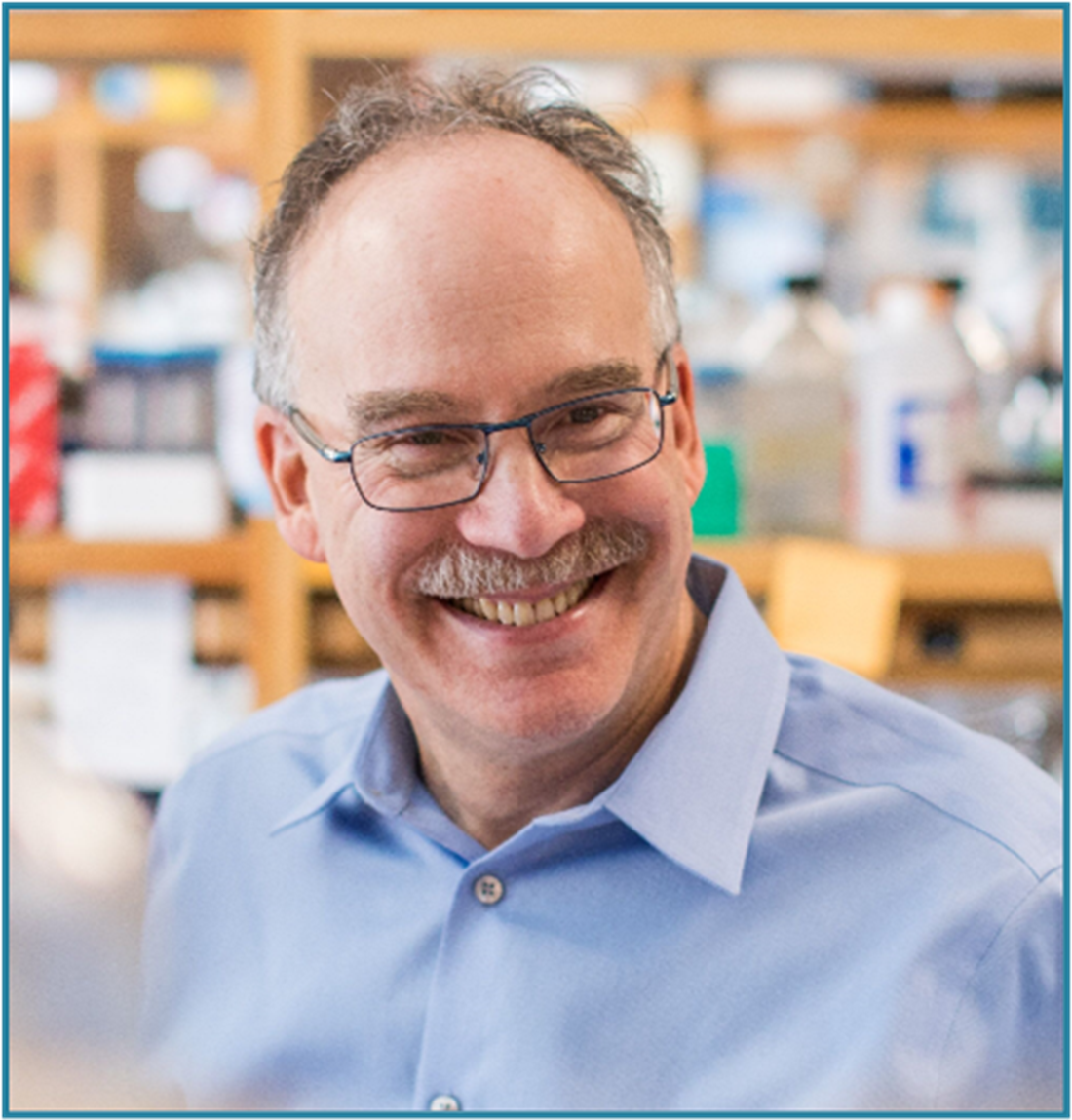
MGH Cancer Center
Director
Dr. Daniel Haber is Director of the Mass General Hospital Cancer Center; Director of the Krantz Family Center for Cancer Research; and the Kurt Isselbacher Professor of Oncology at Harvard Medical School (HMS). He received his MD/PhD from Stanford in 1983, completed an internal medicine residency at Mass General, clinical oncology training at Dana-Farber Cancer Institute (DFCI), and a postdoctoral research fellowship at MIT. He joined the faculty of HMS in 1991.
Dr. Haber’s numerous awards include a MERIT Award from the National Cancer Institute, a Dream Team Award from the Prostate Cancer Foundation and a Dream Team Award from Stand-Up-To-Cancer, and the Richard and Linda Rosenthal Memorial Award from the American Association for Cancer Research (AACR). He was appointed to the Howard Hughes Medical Institute in 2008, and he was elected to the Institute of Medicine in 2009, the American Academy of Arts and Sciences in 2011, and the National Academy of Sciences in 2018. He was elected a Fellow of the American Association for Cancer Research (AACR) in 2019.
Dr. Haber’s research has focused primarily in the field of cancer genetics, resulting in discoveries on the origin of the pediatric kidney cancer Wilms tumor, genetic predispositions to breast cancer, and mutations that define a subset of “non-smoker” lung cancers that are uniquely sensitive to targeted new therapies. In collaboration with Mass General bioengineer Dr. Mehmet Toner, Dr. Haber’s laboratory has developed a novel technology for isolating rare circulating tumor cells (CTCs) from the blood of cancer patients—a tool that may have profound implications for early diagnosis of cancer and for non-invasive molecular profiling of cancers during therapy.
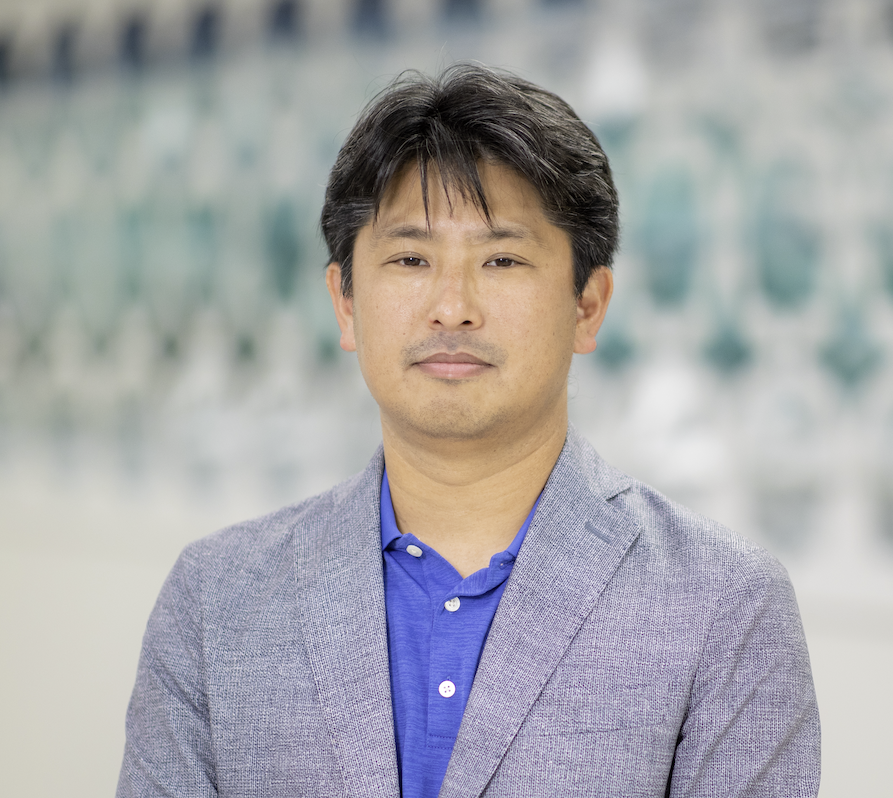
Texas A&M University
Professor
Dr. Arum Han is the Texas Instruments Professor of the Department of Electrical and Computer Engineering, and the Chancellor’s EDGES Fellow and the Presidential Impact Fellow of Texas A&M University. He also holds joint appointment in the Department of Biomedical Engineering and the Department of Chemical Engineering, is a Graduate Faculty of the Texas A&M Health Science Center, Faculty of the Texas A&M Institute for Neuroscience, and Faculty of Toxicology. His research focuses on development of microfluidic, lab-on-a-chip, and organ-on-a-chip systems that enable unique biological experiments at high throughput and high accuracy that can then be readily adopted by the broad bio/medical science community. He has pioneered the area of high-throughput microfluidics for microbiology applications, and have been applying these technologies for synthetic biology, host-pathogen interactions, infectious disease, and microbial bioproduction research. Developing technologies that enable complex multi-step biological assays that involves mammalian cells, microorganisms, and viruses to be conducted in high-throughput microfluidics format are some of his key accomplishments. He has also pioneered the area of organ-on-a-chip systems for feto-maternal interface and preterm birth research, and is applying these microphysiological systems for new therapeutic development and chemical toxicity testing. He is an extremely prolific multidisciplinary researcher, with more than 150 peer-reviewed publications and 10 patents/patent applications, and has been leading and co-leading numerous multi-disciplinary projects. He is also the director of the AggieFab Nanofabrication Facility, a campus-wide cleanroom user facility. He currently serves as the Editor-in-Chief for the journal Biomedical Microdevices.
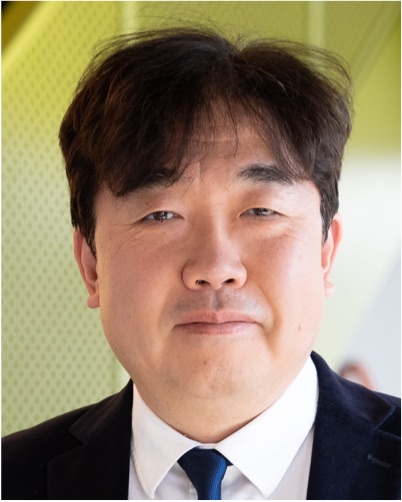
University of Illinois Urbana-Champaign
Professor
Bumsoo Han is a Professor of Mechanical Science and Engineering, and Phil & Ann Sharp Scholar in Cancer Research at the University of Illinois Urbana-Champaign. He is also a Biohub Investigator at CZ Biohub Chicago. Before joining the University of Illinois, he was a Professor at Purdue University and a Program Leader of the Drug Delivery and Molecular Sensing Program of the NCI-designated Purdue Institute for Cancer Research. Bumsoo Han's broad research interests are in transport processes in biological systems. His current research is focused on drug transport at the tumor microenvironment, microphysiological systems of diseases, and cell-matrix interaction in the stroma tissue. In addition, his group has been developing quantitative microscopy techniques to measure transport and biophysical interactions in the cellular microenvironment. His research contributes to drug discovery and cell/tissue engineering for cancer treatment and prevention. He is currently leading a U01 site of NCI PDAC Stroma Reprogramming Consortium. He received US DOD Postdoctoral Award for Breast Cancer Research, NSF CAREER Award, US AFOSR Faculty Fellowship (Predictive Toxicology), and Richard Skalak Best Paper Award from the ASME Journal of Biomechanical Engineering.
University of California, Irvine
Microfluidic platforms for breaking down and rebuilding tumor tissue
Jered Haun is an Associate Professor in the Department of Biomedical Engineering at the University of California, Irvine, with joint appointments in the Departments of Chemical and Biomolecular Engineering and Materials Science and Engineering. He is also a member of the Center for Advanced Design and Manufacturing of Integrated Microfluidics (CADMIM) and the Chao Family Comprehensive Cancer Center. He received a B.S. in Chemical Engineering from the University of Minnesota, M.S.E. in Biomedical Engineering from Johns Hopkins University, and Ph.D. in Bioengineering from the University of Pennsylvania. He then received postdoctoral training from Dr. Ralph Weissleder at Harvard Medical School and Massachusetts General Hospital. The Haun Laboratory for Nanoengineering and Molecular Medicine is focused on developing biomedical technologies that will enable molecular analysis of diseases both inside and outside of the body, including powerful nanomaterial probes, novel microfabricated devices, computational simulations, and advanced imaging methods. He has co-founded two companies to commercialize microfabricated technologies developed in the lab, Kino Discovery Sayenza Biosciences. Awards include the Humboldt Fellowship, Hellman Fellowship, NIBIB Trailblazer Award, and UCI BME Professor of the Year.
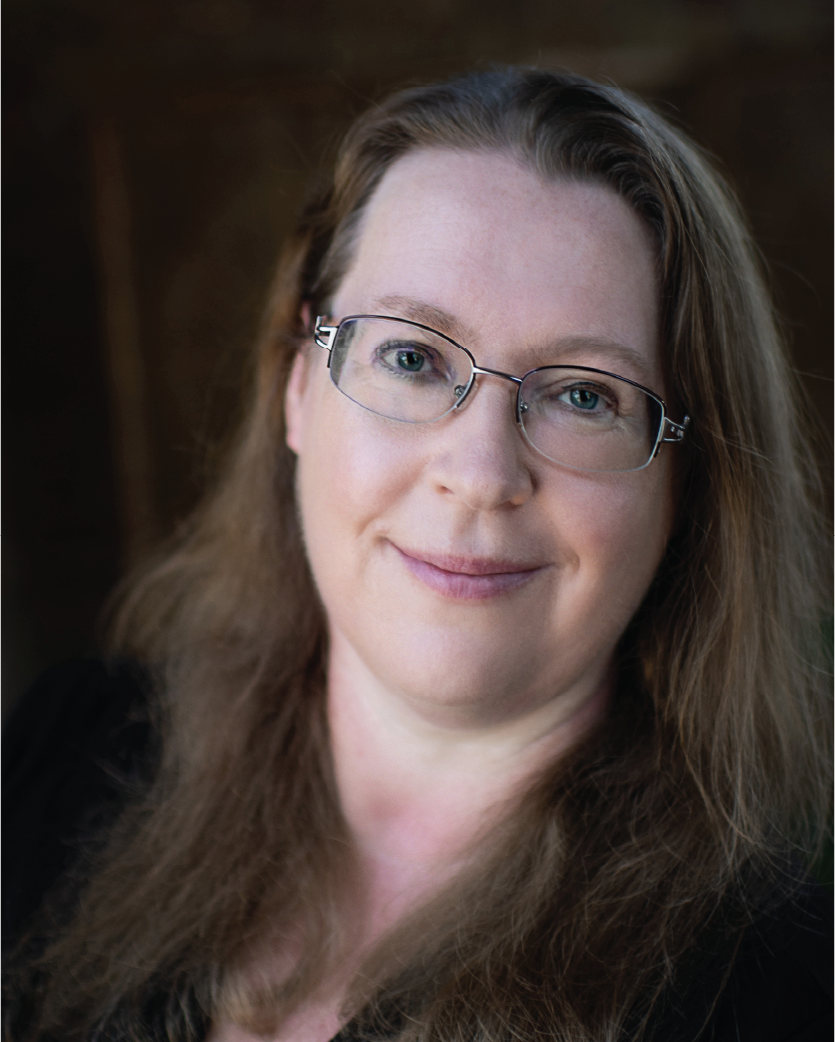
University of Wisconsin-Madison
Research Assistant Professor
Dr Sheena Kerr is a Research Assistant Professor in the Carbone Cancer Center at the University of Wisconsin-Madison. She received a BSc degree in Biochemistry from the University of Stirling and a Ph.D in Biochemistry from the University of Dundee, Scotland before completing postdoctoral training at the University of California, San Francisco. Her research focuses on using modeling complex microenvironments in microscale systems across multiple diseases. These include using microphysiological systems that recapitulate the tumor microenvironment to elucidate molecular drivers of cancer progression and metastasis and investigating the ability of patient-specific tumor models to report treatment efficacy for precision medicine applications. Other ongoing research interests include human immune responses in host-pathogen interactions and infectious disease.
Emory University and Georgia Institute of Technology
W. Paul Bowers Research Chair and Professor
Wilbur A. Lam, MD, PhD is the W. Paul Bowers Research Chair and Professor of Pediatrics and Biomedical Engineering at Emory University and Georgia Tech as well as a clinical pediatric hematologist/oncologist at Children’s Healthcare of Atlanta. He is also Associate Dean of Innovation and Vice Provost for Entrepreneurship at Emory University School of Medicine and Emory University, respectively. His laboratory’s research interests involve developing microsystems and microfluidic technologies to advance our fundamental understanding of the biophysics of hematologic and oncologic processes and diseases. With an interest in patient-operated diagnostics, the Lam Lab is also dedicated to translating their technologies as novel solutions to enable and empower patients to more easily monitor their own diseases at home and in the global health and low resource settings. Dr. Lam is also Co-Director of the Pediatric Technology Center at Children’s and Georgia Tech and is principal investigator of the NIH-funded Atlanta Center for Microsystems Engineered Point-of-Care Technologies, which serves as the national test verification center for the NIH Rapid Acceleration of Diagnostics (RADx) initiative during the COVID-19 pandemic and beyond. Among numerous accolades, Dr. Lam has been elected into the National Academy of Medicine, the American Society of Clinical Investigation, and the Association of American Physicians, is a Fellow of the American Association for the Advancement of Science, the American Institute for Medical and Biological Engineering, and the National Academy of Inventors, named an Emerging Investigator by the journal Lab on a Chip, and is recipient of an NSF Career Award as well as the American Society of Pediatric Hematology/Oncology’s Frank A. Oski Memorial Lectureship Award, the Lab on a Chip Pioneers of Miniaturization Lectureship Award, and an Emerging Investigator Award by the NIH.
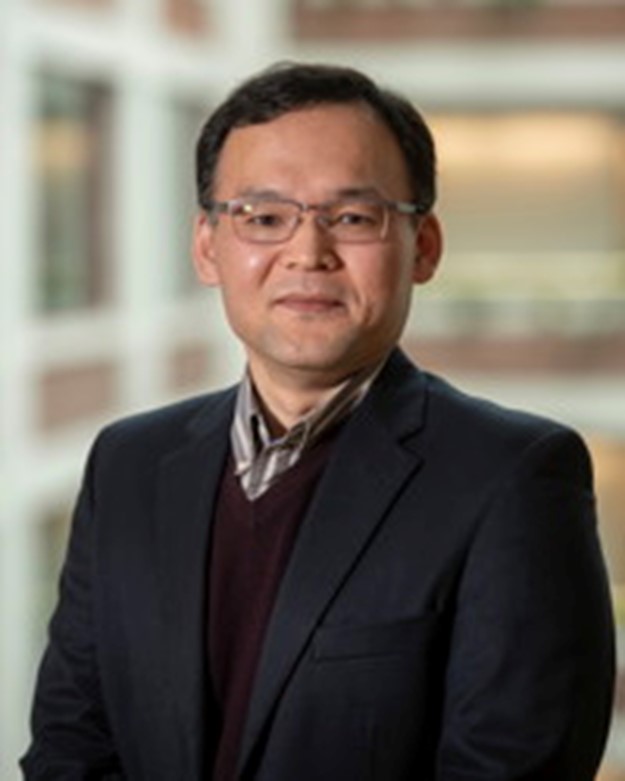
Mass General Brigham
Professor of Radiology
Hakho Lee, PhD, is a Professor of Radiology at Harvard Medical School and Massachusetts General Hospital (MGH). He holds a Ph.D. in Physics from Harvard University and completed his postdoctoral training at MGH. Dr. Lee's expertise lies in nanomaterials, biophysics, and electrical engineering, with a focus on developing biomedical sensors for clinical use. He leads the Biomedical Engineering Program at the Center for Systems Biology (CSB), MGH, and is a global faculty member at the Center for NanoMedicine at Yonsei University.
Dr. Lee is known for his work in bioengineering, particularly in the development of innovative biosensors for various applications, such as identifying infections, detecting cancer, and conducting on-site testing for COVID-19 and marijuana use. Some of his technologies have been licensed to companies for commercialization. Dr. Lee has a notable publication record in high-impact journals and has received prestigious awards for his work. This includes being named one of the ten finalists of the 2015 Blavatnik National Awards for Young Scientists, which recognizes innovative young faculty-rank scientists and engineers. In 2017, he was elected Hostetter MGH Research Scholar, a significant honor for exceptional MGH researchers. Furthermore, in 2023, he was recognized as part of the Class of Distinguished Investigators by the Academy for Radiology & Biomedical Imaging Research.
In addition to his research, Dr. Lee has contributed to the field by serving on review panels and as a consultant for various organizations, including the National Cancer Institute (NCI) and the NIH Common Fund Extracellular RNA Communication Consortium. He is also a steering committee member of the NCI Liquid Biopsy Consortium, where he shares his diagnostic technologies with other institutions for early cancer detection.
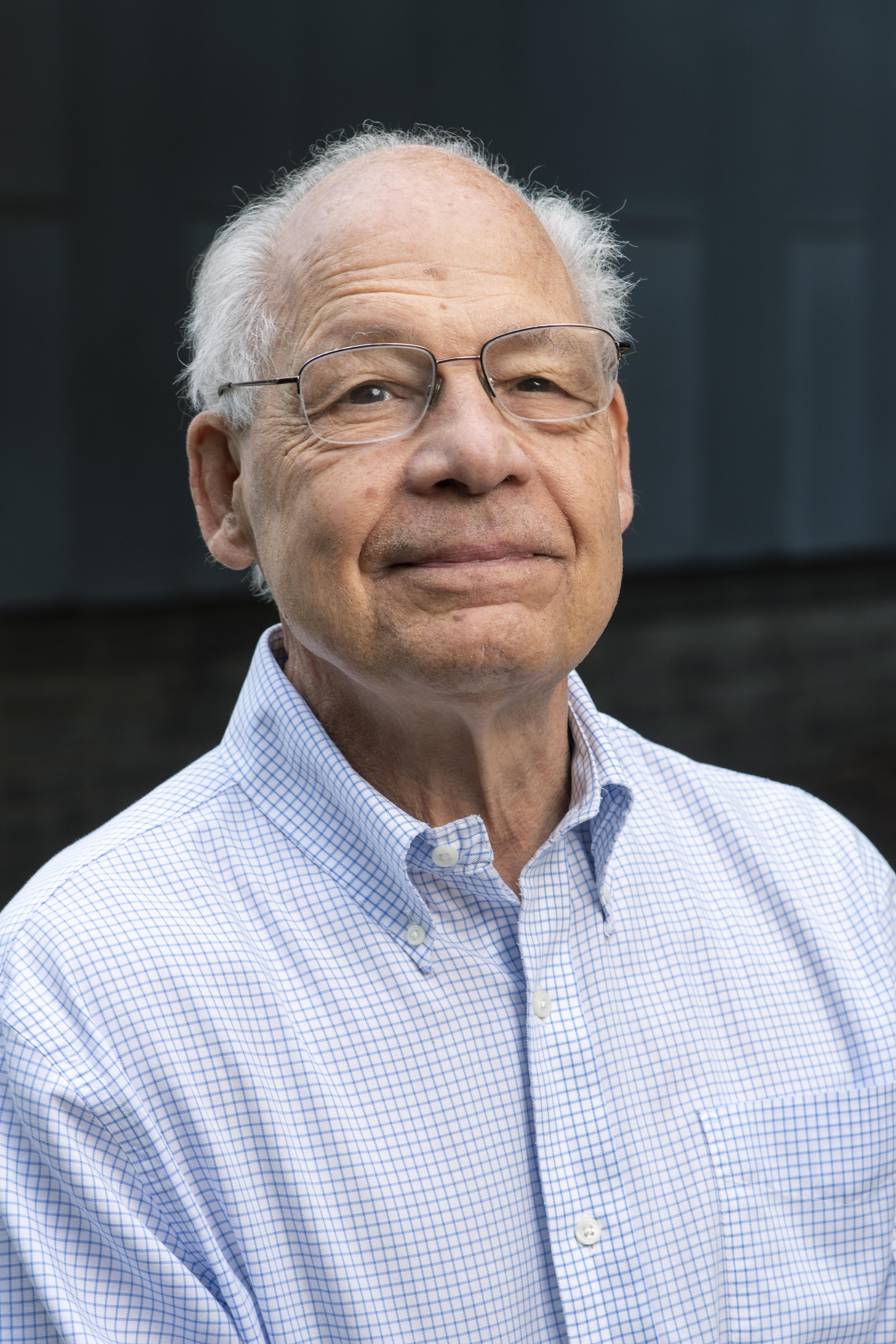
George Mason University Center for Applied Proteomics and Molecular Medicine
Co-Director, Distinguished Professor
Dr. Liotta is a tenured track distinguished professor at George Mason University. He received his MD and PhD (Bioengineering) from Case Western Reserve University, and fulfilled his residency at the National Institutes of Health (NIH), where he initiated a research program that, to date, has yielded more than 700 publications (Highly Cited Investigator Google Scholar h-index 176 ), and more than 100 issued or allowed patents. At NIH Dr. Liotta was Chief, Laboratory of Pathology, Chief, Section of Tumor Invasion and Metastasis, and Deputy Director of NIH under NIH Director Bernadine Healy. He and Dr. Emanuel Petricoin of the FDA set up the first NIH/FDA Clinical Proteomics Program. Dr. Liotta has unique expertise in organ extracellular matrix biology for which he made major discoveries concerning the biochemistry of the basement membrane. Using his bioengineering background, he has experience in molecular imaging, disease pathology, and artificial intelligence/machine learning applied to network modeling.
In 2005, George Mason University recruited Dr. Liotta and their distinguished scientific team, to create the Center for Applied Proteomics and Molecular Medicine (CAPMM). The Mission of CAPMM is to discover disease mechanisms, invent new technologies, educate the scientists of the future, and translate knowledge to help patients through prevention, early detection, and treatment. Dr. Liotta has invented and patented, along with his laboratory co-inventors, high-impact technologies in the fields of diagnostics; microdissection (Laser Capture Microdissection), and proteomics (Reverse Phase Protein Microarrays, Biomarker Harvesting Nanoparticles, Preservation chemistries for tissue, and Protein Painting to discover drug targets), that have been used to make broad discoveries. The Laser Capture Microdissection prototype is in the Smithsonian Collection.
Altos Labs
Director, Biovault
Laura holds a courtesy appointment as Assistant Professor of Research in Physiology and Biophysics at Weill Cornell Medicine, where she previously led the Organoid Platform as Director of ex vivo models at the Englander Institute for Precision Medicine. She is now Director, Biovault at Altos Labs. Laura earned her bachelor's degree from Universidad Nacional de Mar del Plata, Argentina, and continued her studies in Spain, receiving her master's and PhD in Biotechnology, Genetic and Cell Biology from the Universitat de les Illes Balears. Her postdoctoral training was conducted at Memorial Sloan Kettering Cancer Center in New York, after which she joined Weill Cornell Medicine to advance cellular model technology with innovative ex vivo model systems and continues to do so at Altos Labs.
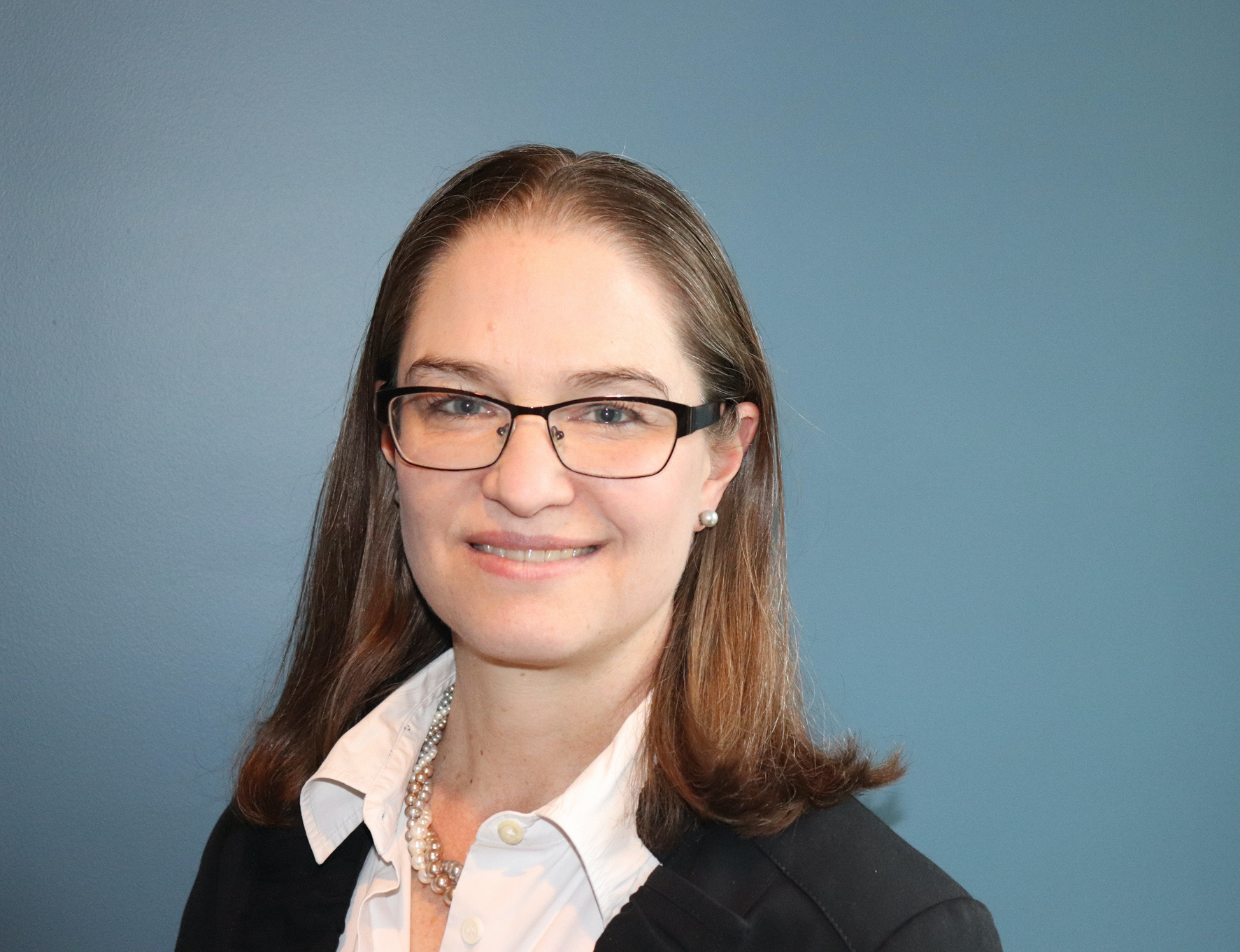
Mercy BioAnalytics
Chief Executive Officer
Dr. Dawn Mattoon is the Chief Executive Officer at Mercy Bioanalytics. She brings more than 20 years of experience in the biotechnology industry and has held leadership positions in R&D, Strategy, and General Management for leading companies including Invitrogen, Life Technologies, Thermo Fisher, and Cell Signaling Technology. Dr. Mattoon previously served as the Senior Vice President for Clinical Diagnostics at Quanterix, where she led the development and commercialization of the company’s first two FDA authorized diagnostic tests for COVID-19, and received Breakthrough Device designations from the FDA for diagnostic tests in Alzheimer’s Disease and Multiple Sclerosis. She has developed and commercialized hundreds of products across a range of proteomic and genomic technologies, and is thrilled to bring the highly innovative Mercy Halo diagnostic test portfolio to patients. Dr. Mattoon earned her Ph.D. in Genetics with a focus in cancer cell signal transduction from Yale University, where she also completed her postdoctoral fellowship.
Mercy BioAnalytics
Chief Executive Officer
Dr. Dawn Mattoon is the Chief Operating Officer at Mercy Bioanalytics. She brings nearly 20 years of experience in the biotechnology industry and has held leadership positions in R&D, Strategy, and General Management for leading companies including Invitrogen, Life Technologies, Thermo Fisher, and Cell Signaling Technologies. Most recently Dr. Mattoon served as the Senior Vice President for Clinical Diagnostics at Quanterix, where she led the development and commercialization of the company’s first two FDA authorized diagnostic tests for COVID-19, and received Breakthrough Device designations from the FDA for diagnostic tests in Alzheimer’s Disease and Multiple Sclerosis. She has developed and commercialized products across a range of proteomic and genomic technologies, and is thrilled by the opportunity to bring the highly innovative Mercy Halo diagnostic test portfolio to patients. Dr. Mattoon earned her Ph.D. in Genetics with a focus in signal transduction from Yale University, where she also completed her postdoctoral fellowship.
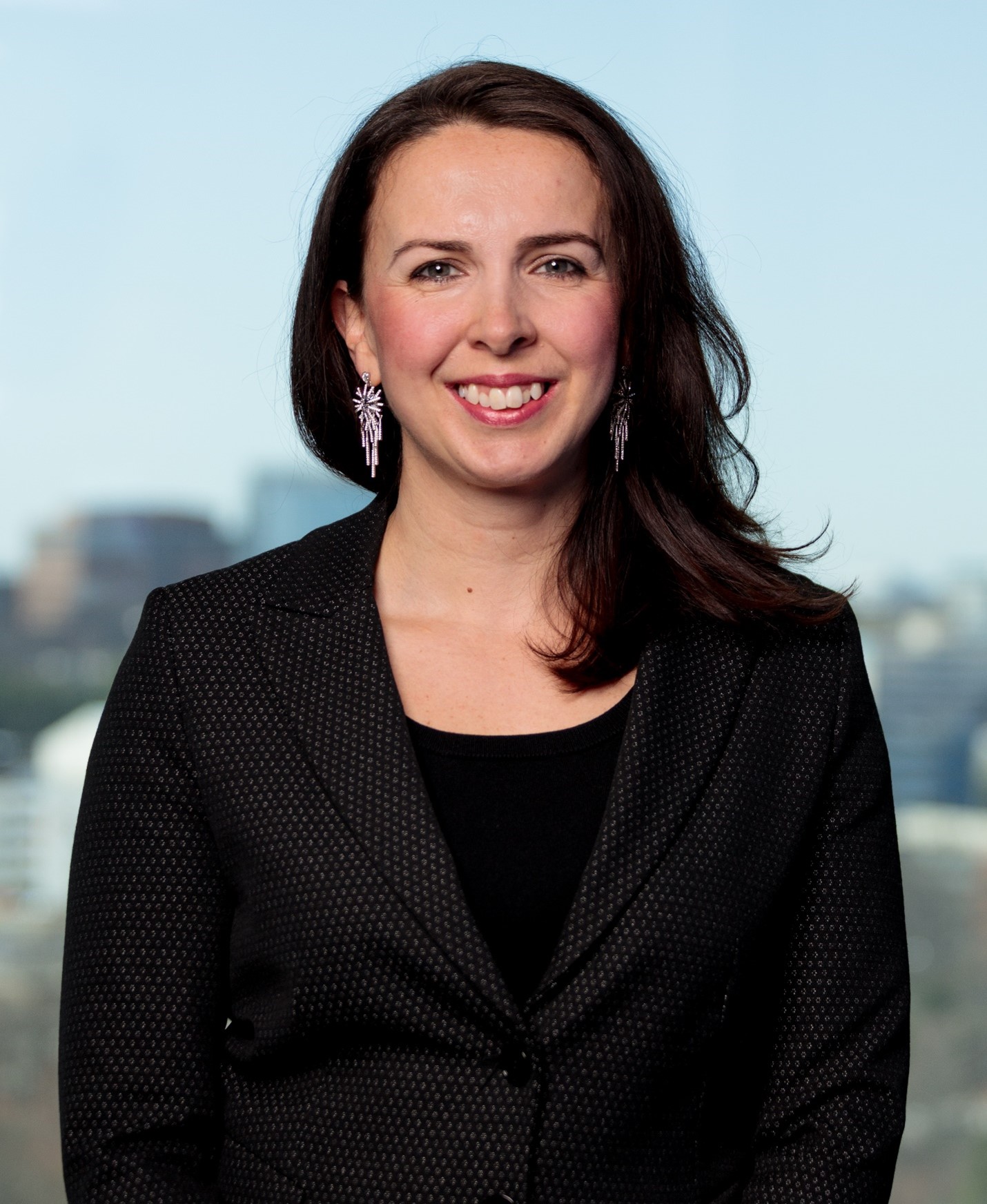
NIH Small business Education and Entrepreneurial Development (SEED)
Principal/Regulatory Specialist
Franziska is a Principal at the MITRE corporation, a not-for-profit that works in the public interest. She is a biomedical innovations leader with over 18 years of experience. She joined NIH SEED's Innovator Support Team in 2020 as a regulatory subject matter expert in laboratory developed testing and in vitro diagnostics, genomic test integration, and clinical labs. She was selected by the NIH as one of 12 national Rapid Acceleration of Diagnostics (RADx) steering panel members and served in this capacity throughout the recent COVID-19 public health emergency.
Prior to joining MITRE in 2020, Franziska held multiple executive leadership positions at Inova Health System where she successfully implemented one of the first precision medicine programs in the nation. Franziska holds an MBA from the University of Maryland, a BS degree in Marketing and International Studies from George Mason University, a Certificate in Genomic Medicine and Bioeconomy from the Harvard School of Public Health, and a Regulatory Affairs Graduate Certificate from George Washington University.
National Institutes of Health
Program Director
Dr. Margaret Ochocinska is a Program Leader in the NIH Office of Strategic Coordination where she leads the Complement-Animal Research In Experimentation (Complement-ARIE) Program to accelerate the development, standardization, validation, and use of human-based New Approach Methodologies (NAMs). She recently launched the NIH-FNIH Public-Private-Partnership effort to establish the Complement-ARIE Validation and Qualification Network for NAMs Adoption and Implementation. Previously, she served as Program Director in the Translational Blood Science and Resources Branch in the Division of Blood Diseases and Resources at the National Heart, Lung, and Blood Institute (NHLBI), where she launched the Trans-Agency Blood-Brain Interface Program, a partnership between NHLBI and the Department of Defense Joint Program Committee-6 (JPC-6) Combat Casualty Care Research Program (CCCRP), to support collaborations between hematologists/vascular experts, neuroscientists, and blood-brain barrier (BBB) tissue chip developers for high risk/high reward research to create enhanced/modified platforms that more closely model the human BBB. Prior to joining NHLBI, Dr. Ochocinska was a Health Program Specialist in the Office of Translational Research, at the National Institute of Neurological Disorders and Stroke (NINDS), supporting both the Countermeasures Against Chemical Threats (CounterACT) Program and the Anticonvulsant Screening Program (ASP). Dr. Ochocinska received her Ph.D. in Neuroscience from the University of Michigan, Ann Arbor, and completed a postdoctoral fellowship at the Eunice Kennedy Shriver National Institute of Child Health and Human Development (NICHD), where she worked on identifying mediators of photoreceptor degeneration.
Baebies, Inc.
Founder and President
Vamsee K. Pamula is Founder and President of Baebies, which pioneered multifunctional diagnostics with a mission to deliver any diagnostic test, anywhere, and to everyone. He is currently interested in the development of inexpensive and accessible diagnostics products. Prior to this, he was founder and CTO of Advanced Liquid Logic Inc (sold to Illumina). He serves as a principal investigator on several projects funded by the NIH, served as a peer reviewer for many journals and funding agencies, has given numerous talks on digital microfluidics, has published over 100 articles, authored 5 book chapters and a book, and has over 420 issued and pending patent applications worldwide. He has a PhD in electrical and computer engineering from Duke University.
Stanford University
Associate Professor
Guillem Pratx is an associate professor of Radiation Oncology and Medical Physics at Stanford University. He earned a BS in Engineering from the Ecole Centrale in Paris and a PhD in Electrical Engineering from Stanford University, where his dissertation research focused on medical imaging. In his current position as a faculty member, he leads the physical Oncology Lab, which employs physics and math to advance cancer research and patient care. His ongoing research blends traditional medical physics concepts with the latest advances in biomedical engineering to incorporate novel capabilities into medical imaging and improve the efficacy of radiation therapy. Prof. Pratx is a Damon Runyon Innovator, an SNMMI Young Investigator awardee, an NIH-funded principal investigator, and the author of over 90 publications. He also teaches in several courses related to imaging and radiation therapy.
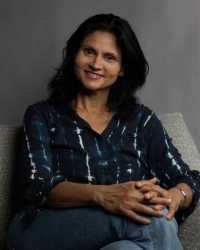
Duke University
Professor of Biomedical Engineering
Dr. Nimmi Ramanujam is the Robert W. Carr Professor of Engineering and Professor of Cancer Pharmacology and Global Health at Duke University and co-program leader of the Radiation Oncology and Imaging Program (ROIP) at the Duke Cancer Institute. Dr. Ramanujam’s research focuses on breast and cervical cancer. Her goals are to design innovations that enable complex referral services often reserved for hospitals to be accessible at the community/primary care level, develop technologies to see and treat women with early-stage disease in one visit and to develop tools that will make cancer treatment more effective and efficient. She founded the Center for Global Women’s Health Technologies (GWHT) in 2013 where she empowers trainees to create impactful solutions to improve the lives of women and girls globally. This center, since its inception, has catalyzed new research activities and the development and commercialization of several technologies that advance the prevention and treatment of cervical and breast cancer. She has created two companies Zenalux and Calla Health to commercialize her technologies.
NIST
Project Leader
Dr. Darwin R. Reyes is a principal investigator at NIST. His work focuses on a cutting-edge technology he developed in his lab that allows for the integration of manipulation and measurement tools within microfluidic/microphysiological systems. These tools enable Heart on a Chip and cancer cell-based assays and analysis to advance regenerative medicine and therapeutics. He was a member of the Commissioning Panel of the Lab on a Chip journal, a member of the MicroTAS Conference Executive Technical Program Committee, and a councilor of the AES Board of Directors. He is currently an Advisory Board member for the Lab on a Chip journal, the chair of the International Microphysiological (MPS) Society Standards Interest Group, co-founder and co-chair of the Organ/Tissue on a Chip Engineering Standardization Working Group, and co-founder and chair of the Microfluidics Association (MFA). Dr. Reyes was recently selected as an American Institute for Medical and Biological Engineering’s (AIMBE) Emerging Leader (2025). He was also awarded the PML/NIST Outstanding Achievement in Measurement Services and Standards Award for his contributions to the development of ISO standards through his work with the MFA.
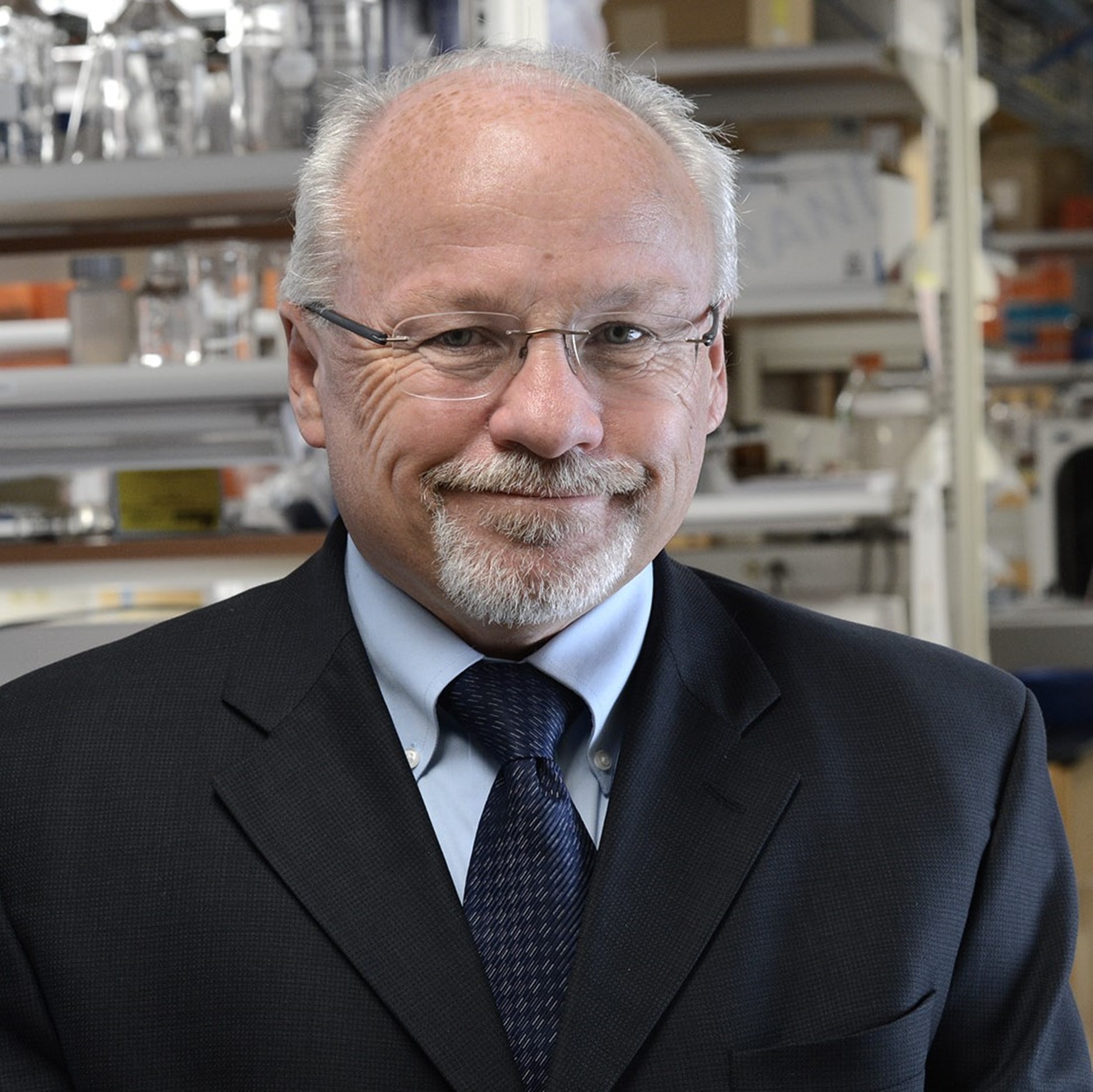
University of Kansas
Foundation Distinguished Professor
Steven A. Soper received his PhD from the University of Kansas in 1989 and then served as a Post-doctoral Fellow at Los Alamos National Laboratory. He joined the faculty at Louisiana State University (LSU) in 1991 and was named the William L. & Patricia Senn Professor in 2002, alongside positions as Professor of Mechanical Engineering and an adjunct Professor of Biological Sciences. He was selected as a University World Class Professor in 2009 at Ulsan National Institute of Science & Technology, UNIST (South Korea), where he spent 6 years performing research and teaching classes at UNIST (he continues to be an adjunct professor at UNIST). In June 2011 he joined the University of North Carolina’s Joint Department of Biomedical Engineering as a tenured Professor. In 2016, Professor Soper was appointed as a Foundation Distinguished Professor in Chemistry and Mechanical Engineering at the University of Kansas. Professor Soper's research focuses on BioMEMS/BioNEMS, single molecule detection, and new bioassay developments for in vitro diagnostics to augment precision medicine care of patients. He has received various awards, such as the R&D 100 Award (1993), the Charles E. Coates Award for Contributions to Chemical/Engineering Research in Louisiana (2001), the A.A. Benedetti-Pichler Microchemical Award (2006), LSU Distinguished Research Award (2008), the ACS award in Chemical Instrumentation (2011), RN Adams Award in Bioanalytical Chemistry (2021), and the KU Higuchi award in applied research (2022). He has accumulated over 350 peer-reviewed research publications and has mentored 68 PhD and 8 MS students over his career. He is also the Director of an NIH-funded Biotechnology Resource Center of Mixed-Scale Biomodular Systems for Precision Medicine.

NCATS, NIH
Director, Office of Special Initiatives
Danilo Tagle is currently Director, Office of Special Initiatives at the National Center for Advancing Translational Sciences (NCATS) of the National Institutes of Health (NIH) where he leads efforts in developing innovative tools and technologies that can greatly accelerate development of diagnostics and therapeutics. These programs involve interdisciplinary collaborations between intramural and extramural components of NIH, and entail partnerships with other agencies, such as FDA, NASA, and DARPA, as well as with private sector. Some of the programs include tissue chips, 3D bioprinting, automated chemistry, electronic nose technology for disease diagnosis, quantum technologies, and the isolation and analyses of exosomes for biomarker and therapy development. He has served on numerous advisory and review committees and editorial boards. He currently serves on the Biological and Physical Sciences Federal Advisory Committee, on the White House OSTP Microgravity Science and Technology Interagency Working Group, and serves as the point-of-contact for the liaison to the NASA/NIH/Department of Health and Human Services partnership. Dan obtained his PhD and MS in molecular biology and genetics from Wayne State University School of Medicine. He was an NIH National Research Service Award postdoctoral fellow in human genetics at the University of Michigan. Dan has authored many scientific publications and has garnered numerous awards, including several NIH Director’s Award, and more recently the Roscoe O. Brady Award for Innovation and Accomplishment; the Henry J. Heimlich Award for Innovative Medicine; the Department of Health and Human Services Secretary's Award for Distinguished Service: Rapid Acceleration of Diagnostics (RADx) Initiative, and the NASA Silver Group Achievement Award.
NIBIB
NIBIB Supervisor
Bruce J. Tromberg, Ph.D.
Director, National Institute of Biomedical Imaging and Bioengineering
National Institutes of Health
Bethesda, MD
Bruce.tromberg@nih.gov
https://www.nibib.nih.gov/about-nibib/staff/bruce-j-tromberg
Dr. Bruce Tromberg is the Director of the National Institute of Biomedical Imaging and Bioengineering (NIBIB) at NIH where he oversees research programs focused on developing, translating, and commercializing engineering, physical science, and computational technologies in biology and medicine. He leads NIBIB’s Rapid Acceleration of Diagnostics technology (RADx Tech) initiative, established in 2020 to increase SARS-COV-2 testing capacity & performance and broadened in 2023 to include over the counter (OTC) and point of care (POC) devices for additional diseases and conditions. His laboratory, the Section on Biomedical Optics (SBO) in the Eunice Kennedy Shriver National Institute of Child Health and Human Development (NICHD), develops portable, bedside, non-contact, and wearable technologies for quantitative sensing and imaging of tissue composition and metabolism.
Prior to joining NIH in January 2019, Dr. Tromberg was a professor of biomedical engineering and surgery at the University of California, Irvine (UCI). During his 30-year academic career Dr. Tromberg served in multiple leadership roles, including, director of UCI’s Beckman Laser Institute and Medical Clinic (BLIMC), PI of the Laser Microbeam and Medical Program (LAMMP), an NIH National Biomedical Technology Center, and co-founder of UC Irvine’s Department of Biomedical Engineering. Dr. Tromberg specializes in the development of optics and photonics technologies for biomedical imaging and therapy. He has co-authored more than 450 publications and holds 27 patents in new technology development as well as bench-to-bedside clinical translation, validation, and commercialization of devices. Honors and awards include the Michael S. Feld Biophotonics Award from the Optica society, the Britton Chance Biomedical Optics Award from the International Society of Optical Engineering (SPIE), and membership in the National Academy of Medicine, the National Academy of Engineering, and National Academy of Inventors.
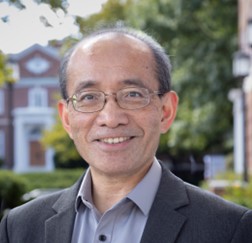
Johns Hopkins University
Louis M. Sardella Professor
Tza-Huei (Jeff) Wang is the Louis M. Sardella Professor of Mechanical Engineering and Biomedical Engineering at Johns Hopkins University, where he has been a faculty member since 2002. He earned his Ph.D. in Mechanical Engineering from UCLA in the same year. Dr. Wang’s research focuses on developing cutting-edge micro- and nano-biotechnologies for molecular analysis and biomedical diagnostics, guided by a vision to advance global health equity through technologies that deliver exceptional sensitivity, specificity, affordability, and accessibility. A prolific researcher and inventor, Dr. Wang has published over 200 peer-reviewed journal articles, presented more than 120 conference papers, and delivered over 150 invited talks worldwide. He holds 27 U.S. patents and 12 international patents. His research has led to the founding of four spin-off companies, including Circulomics, which was acquired by Pacific Biosciences (PacBio). Dr. Wang’s contributions have been recognized with numerous honors, including the NSF CAREER Award, the CRS Jorge Heller Award, the JALA Ten Award, and the Cohen Translational Engineering Award. He has been elected a Fellow of the American Association for the Advancement of Science (AAAS), the American Institute for Medical and Biological Engineering (AIMBE), the American Society of Mechanical Engineers (ASME), the Institute of Electrical and Electronics Engineers (IEEE), and the Royal Society of Chemistry (RSC).
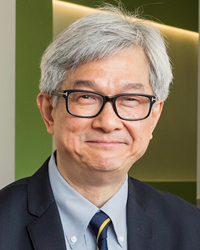
University of California Los Angeles
Professor
David T.W. Wong DMD, DMSc is Professor and Director of the Oral/Head and Neck Oncology Research Center at UCLA. He is a Fellow of the American Association for the Advancement of Sciences (AAAS), Fellow of AADR, past member of the ADA Council of Scientific Affairs, and the past president of American Association of Dental Research (AADR). He is the current chair of the NCI Liquid Biopsy Consortium and past chartered member and chair of the NIH CSR Molecular Cancer Diagnostics and Classification (MCDC) study section.